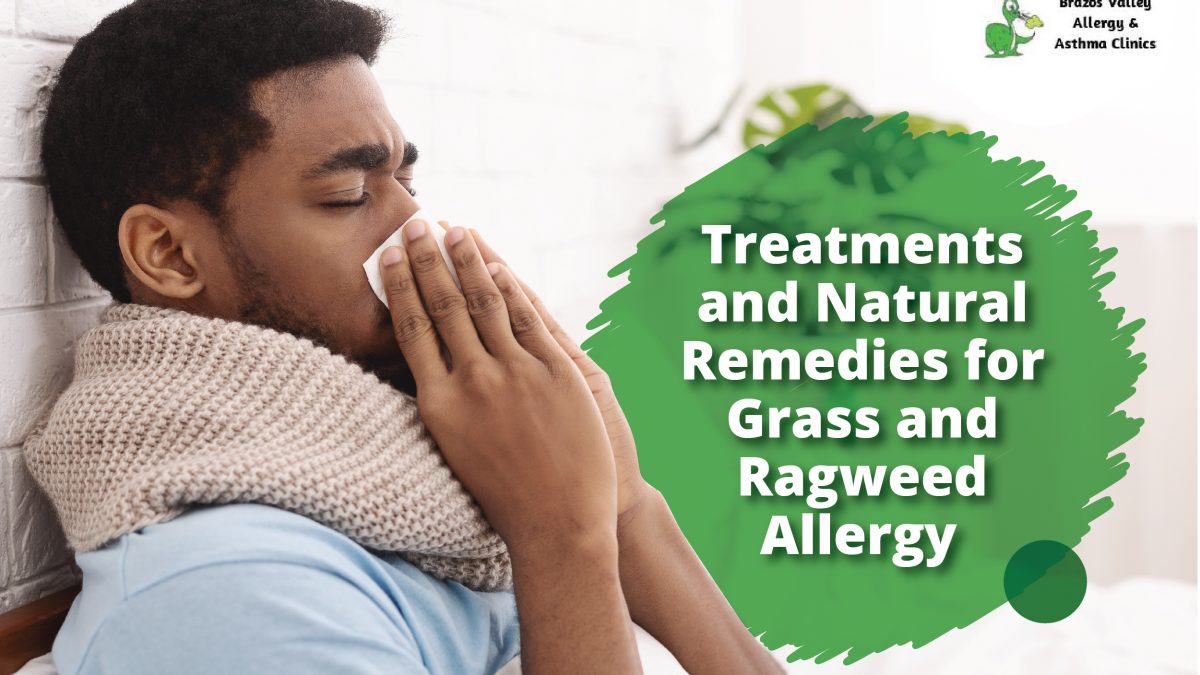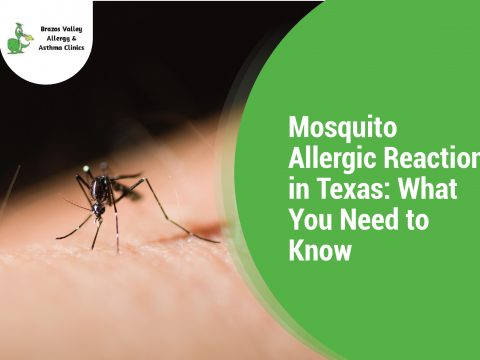- 979-485-9287
- office@bvallergy.com
-
 979-251-7804
979-251-7804
Treatments and Natural Remedies for Grass and Ragweed Allergy

Ragweed Allergy: Why Your Symptoms Are Getting Worse This Year
August 13, 2021
Everything You Need to Know About Autumn Allergies
September 28, 2021Many people opt for over-the-counter medication for allergy relief. They are still the best treatment. However, it can bring unwanted side effects like grogginess and sluggishness. You can strive for better relief by combining both medication treatment and natural remedies. This guide will give the best medical treatment and natural remedies available for Grass and Ragweed Allergies.
What is Grass Allergy?
A grass allergy occurs when your immune system reacts to pollen coming from a type of grass. If you have a hypersensitivity to grasses, it’s best to avoid them. Take note of these symptoms:
- runny or stuffy nose
- puffy eyes
- itchy throat, mouth, skin, or eyes
- weariness
- headache or sinus pressure
- sneezing
Inhaling grass pollen might cause symptoms like runny nose, watery eyes, and sneezing. However, if your skin comes in contact with grass, it may produce rashes. Rashes caused by grass may appear in different ways:
- Itchy red bumps on the skin may be mild or severe.
- Skin can become very red, burn, and even blister.
- A dry, itchy, patchy rash
What is Ragweed Allergy?
A ragweed plant releases almost a billion grains of pollen. If you happen to inhale its pollen, you may likely get an “allergy.” Its season typically starts in mid-August and ends in mid-October. Ragweed is usually worse in summer and on cold nights. It causes symptoms like:
- Sinus infection
- Nasal congestion
- Bulgy and bluish skin under the eyes
- Eye allergy or irritation
- Wheezing
- Pain around the nose and cheek areas
- Itchy throat
People who are allergic to ragweed suffer from the symptoms above. The immune system prevents harmful substances from attacking the body. However, if you inhale ragweed pollen, you may experience some allergic reactions. You may experience two or three of the symptoms mentioned, depending on your body’s response. It usually happens when ragweed pollen enters your immune system.
Treatments for Ragweed Allergies:
Allergy shots
These provide fast relief for allergy symptoms since it lowers allergen-sensitivity.
Medications
- Corticosteroids.
- Allergy treatments like a decongestant or an antihistamine.
- Antihistamine and decongestant medications such as Actifee and Claritin-D
- Loratadine (Claritin), and diphenhydramine (Benadryl)
- Afrin nasal sprays help with congestion – Oxymetazoline.
Healthy Lifestyle
A healthy lifestyle reduces your chances of getting sick, including allergies. To cope with ragweed allergies, here are several things you can do:
- Choose pollen-free locations.
- Vacuum the house every week with HEPA filters.
- Run the air conditioner for extended periods for the whole year.
- Close windows from time to time so allergens can’t enter your home.
- Dry your clothes with a dryer and try to avoid exposing your clothes to pollen.
- Exercise with simple breathing exercises or yoga.
- Eat a simple diet, including foods rich in protein and Vitamin D.
- Sleep at least 8 hours every day.
Treatments for Grass Allergies:
Medication
Over-the-counter allergy medications are effective for combating the symptoms of grass allergies. The doctor may suggest the following medications if your allergy is severe and frequent:
- Nasal corticosteroid sprays
- Immunotherapy shots
- Decongestants
Limit outdoors exposure
When you know that you have grass allergies, you should eliminate grasses around your home. You can hire someone to mow your lawn where grasses are robust. During the cutting of grasses, wear protection for your eyes and nose. Also, don’t put your laundry out to dry. Pollen can stick to your clothes, towels, and sheets.
Grass Pollen Count
Find out when grass pollen counts are highest in your area. If the grass pollen count is high, stay inside as much as possible. You can learn about it online. Wear a face mask if you have to go outside.
Natural Remedies for Grass and Ragweed Allergy
Quercetin
Fruits such as apples and red grapes, vegetables such as onions, and plant-based foods contain quercetin. Its natural anti-inflammatory, decongestant, and antihistamine properties prevent histamines from being released.
Eucalyptus
Add two drops of eucalyptus oil to boiling water or your vaporizer. After that, inhale it deeply. Eucalyptus should be used with caution, especially if you take drugs (amphetamines) or sedatives(pentobarbital). Always consult a physician to avoid health problems. Eucalyptus is a fragrant leaf that thins mucus and helps relieve severe coughs. There are many different ways to consume it, including tea, cough syrup, and essential oil.
Butterbur
Butterbur’s allergy-fighting properties have been known for centuries. Herbs from the daisy family help prevent coughing and treat hay fever symptoms. According to studies, its effect is like antihistamines but without drowsiness. Use this natural remedy twice daily by taking 50-75mg capsules.
Vitamin C
Vitamin C (ascorbic acid) can function as an antihistamine, too. It also boosts your immunity to fight off allergy symptoms. Vitamin C stabilizes the mast cell membranes, which are responsible for the release of histamine.
BVAllergy Can Help
Allergies usually require treatment. When you combine it with natural remedies, it becomes more effective. You can always consult an allergist for the best remedies.
Paul Jantzi has spent more than 13 years serving the south-central Texas region as an allergist. He is board-certified in allergy and immunology with prior specialty training in pediatrics and internal medicine. Schedule a meeting with him to learn more about immunotherapy and how it can help with your allergy symptoms.




